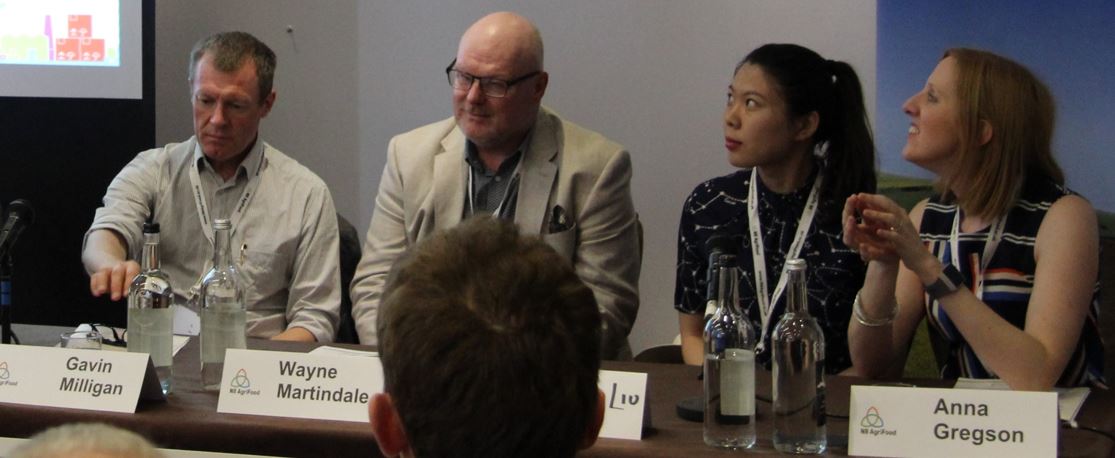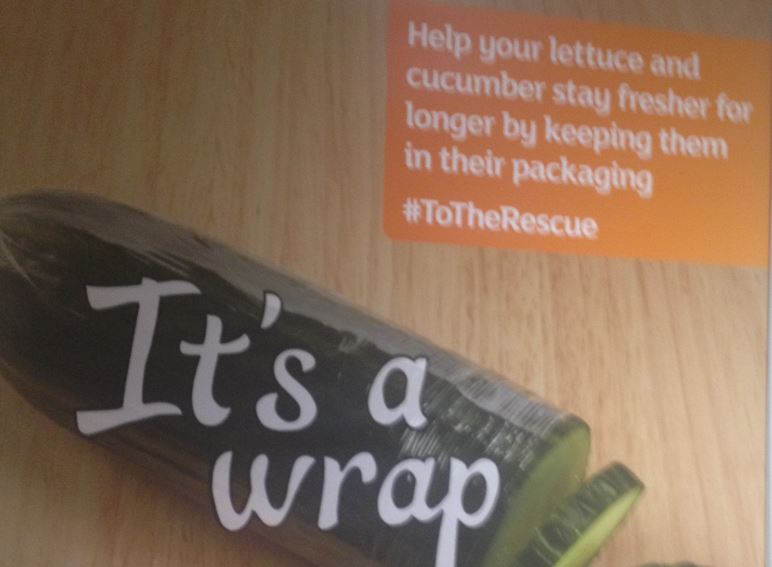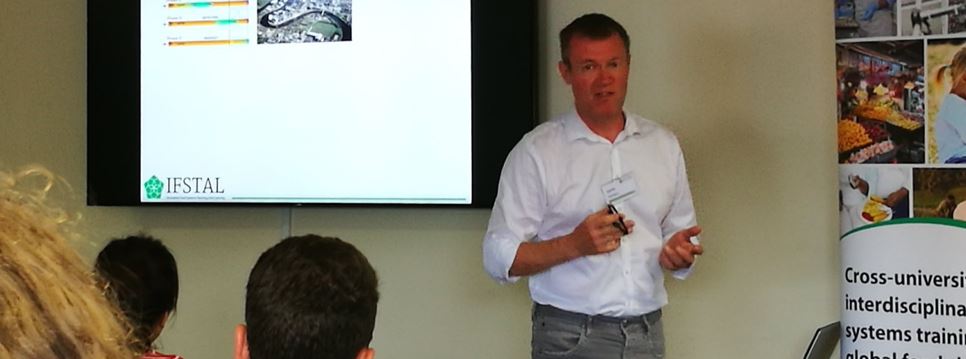It Really Is Rocket Science
Or at least, the surroundings were. Recently I chaired a meeting of FoodWasteNet at the National Space Centre in Leicester. No link with space exploration, they just rent out meeting rooms. Although there was some impressive science discussed at the meeting, I very much doubt that any of the presenters would have claimed that their work was a match for the literally space-age engineering in the halls around us.

The specific purpose of the meeting was to address complex multi-component waste streams arising from food manufacturing operations and the delegates were treated to a tour round a nearby sandwich manufacturing site. Thanks to the team at Samworth Brothers for adding this extra interest to the meeting. Along with 12 other BBSRC-funded networks, FWN exists to bring together researchers, entrepreneurs and manufacturers in a forum to find solutions to the challenge of food waste. Globally, around one-third of food isn’t consumed and anything that is genuinely unavoidable could potentially be used to produce useful platform chemicals and other materials. Of course, this should be the last resort; finding ways to keep the food edible and getting it eaten must be the first priority and it is a specific target within the UN Sustainable Development Goals, attracting its own collaborative effort ‘Champions 12.3′. I’ve mentioned the issue of cucumber wrapping in a few conference talks recently (see the ‘Supply Chain Reaction’ and ‘Bees, Leas and SDGs’ posts) including my contribution to a panel discussing the adoption of new technologies at the N8 conference in Liverpool (pictured below). Thanks to Wayne Martindale of Lincoln University for arranging the invitation to join the panel.

There is widespread public mis-trust of plastic wrapping for understandable reasons, although the science is unequivocal; wrapping extends the life of cucumbers and the emissions embedded in the fruit are far more significant than the emissions embedded in the wrapping. But… does that inevitably result in the cucumber being eaten rather than wasted? For that to happen, there must be appropriate behaviour by the consumer and there is no guarantee of that, especially if people aren’t aware of the facts or aren’t prepared to make any compromise on product quality. Sainsbury’s, and no doubt other grocery retailers, are engaging in publicity over the benefits of wrapping (see below), so it will be interesting to see how it works out. The public reaction to ocean plastics, albeit 30 years after the issue was first postulated, may mitigate against it in the short term.

I was also invited by the IFSTAL team to host a discussion table at their session, which was designed to publicise what the initiative does to provide broad education around the agri-food system. Acknowledging that it is indeed a system and recognising that a better understanding of the system will almost inevitably lead to improved application in its individual component parts. I’m a great fan of what the IFSTAL team do and as I type this part of the blog I’m en route to help out at their annual summer school.

One of the highlights of the N8 conference which I mentioned in the previous post (‘Supply Chain Reaction’} was the talk by cross-bench peer Professor The Lord Sandy Trees, pictured with me below, who spoke about some of the potential impacts of Brexit on the UK’s food system. Interesting, insightful and illuminating in equal measure, the presentation was a well-made reminder that science has to exist in the context of policy. Chatting to him after the conference dinner – being a peer doesn’t mean you’re unapproachable – I discovered that Lord Trees went to school just a few miles away from where I currently live. Small world.

In between N8 and FWN, I was one of around 100 attendees at a conference celebrating the 20th anniversary of the Food Ethics Council. Entitled ‘The Future of Food – All Things Considered’ the event was both a celebration of the organisation’s past and an exploration of priorities for the future. Below you can see a timeline of the FEC’s activities over the last 2 decades. In my corporate life I attend FEC discussion events which are invariably instructive and thought-provoking. Well done to Dan Crossley and colleagues at FEC for putting it all together.

Finally, another IFSTAL event (it’s obviously that time of year) with a trip to Reading to contribute to their annual summer school. I’ve written about IFSTAL before and I’m a great fan of what the initiative does, which is to provide insights across the food system to post-graduate students from a range of disciplines related to food and agriculture. The summer school covers all sorts of topics including communication and team-working skills, analytical tools and workplace experience. My part was as one of the workplace representatives giving the students an insight into how career paths can develop. The other contributors were from York University, Public Health England and Mack Fruit (a large importer of exotic fruits). Each speaker gave a presentation on their own career and then held a series of Q&A sessions with groups of delegates.

The students were interested in my career path of course (not as planned as they expected, but that was also true of the other workplace contributors). They were perhaps even more interested in my thoughts on a few of the difficult sustainability issues of the day. I was able to help provide some context and informed opinion, but if I’d had the ‘real’ answers I’d be working at the UN…